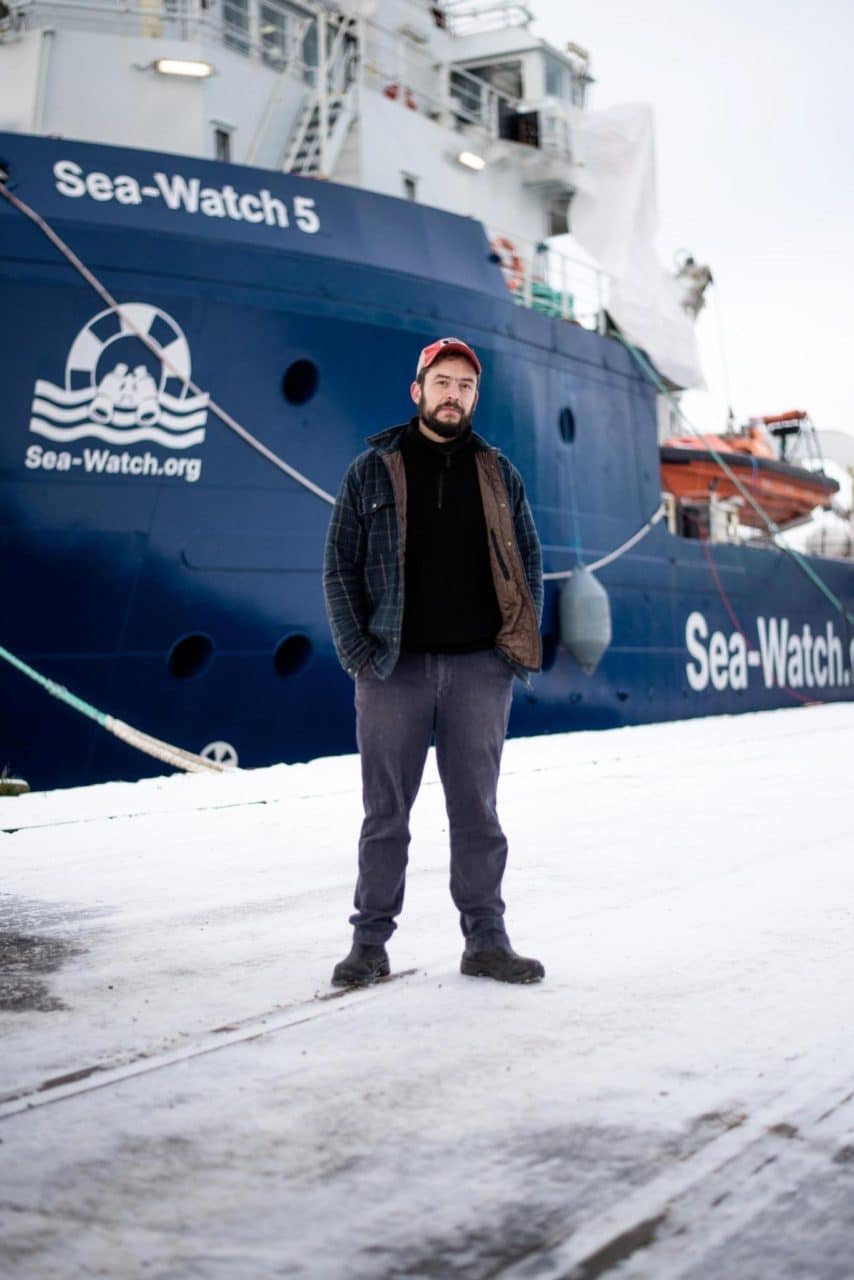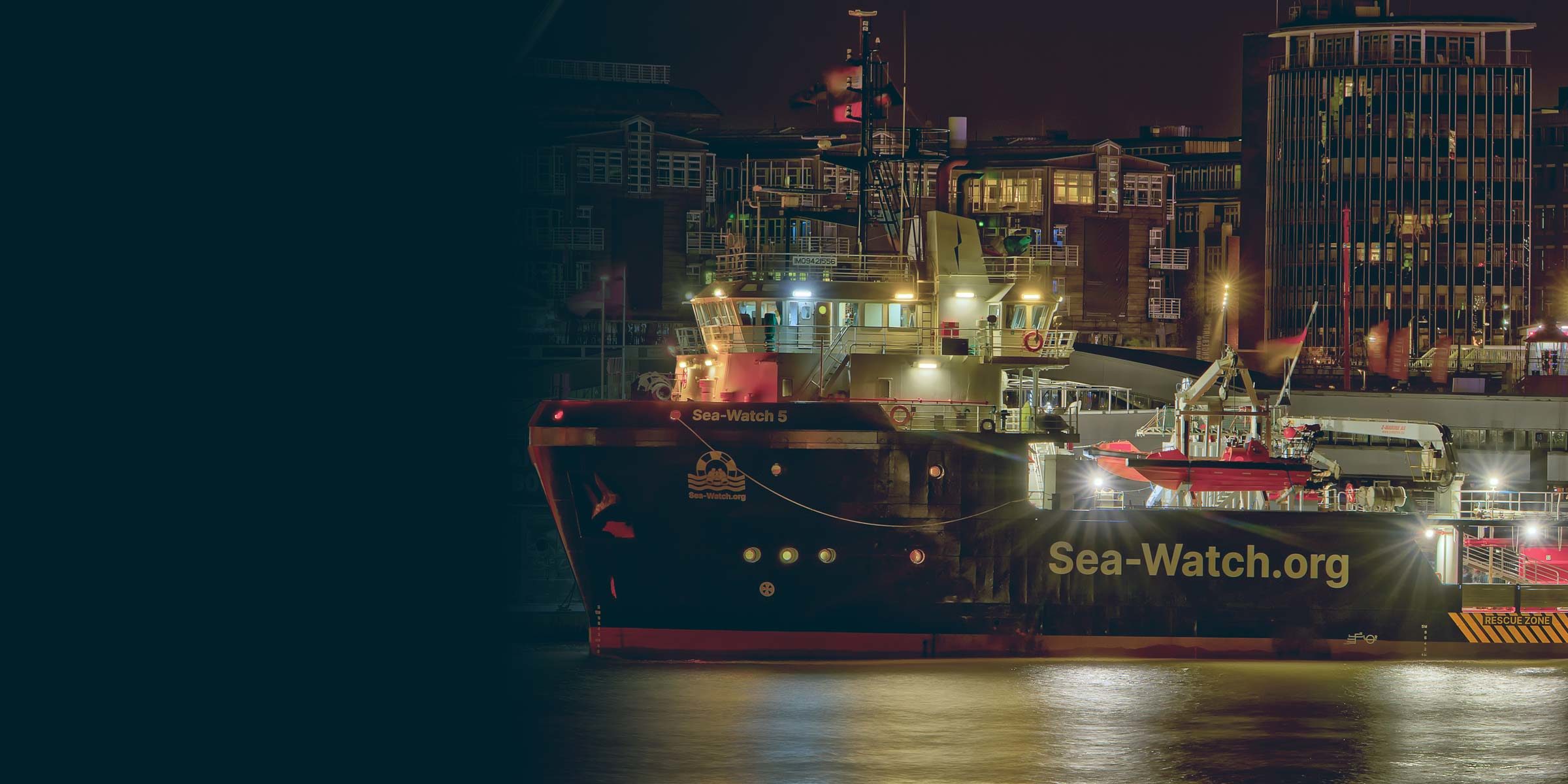Reimar is one of the captains of Sea-Watch. During our missions, but also during shipyard times, he makes sure everything runs smoothly from the ship’s bridge. This year he is celebrating Christmas in Flensburg on the Sea-Watch 5.
You are currently on the Sea-Watch 5. How did you come to work on the Sea-Watch ships?
Reimar: A friend told me that Sea-Watch was looking for people to work on their ships. So I applied for a job. A little more than two years ago I started working for Sea-Watch. First I was in port for two months, and then I was part of the crew on a crossing from Italy to Spain. In the meantime, I have also been on four rescue missions. As part of the crew, I am regularly on the ships. That’s how I ended up here in wintry Flensburg on the Sea-Watch 5.
Over Christmas, most people spend time with their family or friends. You are here instead, helping to get the ship ready for deployment as quickly as possible. Why are you doing this?
Reimar: Well, to be honest: Most people I know also see the Christmas season with the family as a burden. At least partly. And it wasn’t so much a choice, it’s part of my job: our crew rotates, which means I’m on the ship one month a year, then not for a few months. This year also over the holidays. But I am really happy to be on the ship. I love working on board with the other oddballs here. I’m really happy to be part of making Sea-Watch’s biggest ship ever operational. For that, skipping Christmas at home is not such a big deal.
Rescue missions are often in the foreground, especially in the media. The shipyard periods, i.e. when work is done in the harbour, often get little attention. Why are they so important nevertheless?
Reimar: Quite simply: no shipyard, no rescue mission, no attention. The Sea-Watch 5 is not ready for deployment at the moment, so there is no way around doing this conversion work. It’s pretty hard work most of the time, but it’s also a lot of fun.
You also worked a lot on the currently blockaded Sea-Watch 3. What was your most impressive memory on board?
Reimar: Puh… There are quite a few! But the memory of the announcements to the people on deck that we had reached safe harbour is very strong. Seeing them able to leave the ship again, how relieved they are and how grateful they are to us, the crew, is a great feeling.
Reimar: Puh… There are quite a few! But the memory of the announcements to the people on deck that we had reached safe harbour is very strong. Seeing them able to leave the ship again, how relieved they are and how grateful they are to us, the crew, is a great feeling.
Another experience triggers a mixture of fear and anger in me. I was once involved in the transfer of a newborn baby from one of our speedboats to the ship. It was a confusing rescue situation. Many people were in the water at the time. Our paramedics were afraid for the child because it was very hypothermic. When I think about how that moment went, how the child could have fallen into the water… It still sends shivers down my spine. This is what it looks like in practice when people are denied basic rights like freedom of movement and asylum. That such situations are allowed by the EU is outrageous.

The Sea-Watch 3 is currently moored in Italy. Her successor, the Sea-Watch 5, is our answer to Italy’s new ultra-right government. What do you have to say to Italy and all of Europe?
Reimar: This repressive border policy is brutal and disgusting. We have to change it!!











